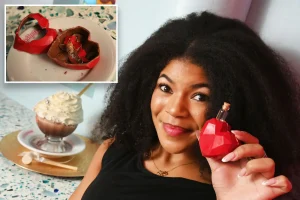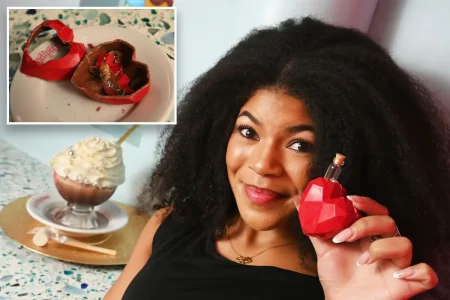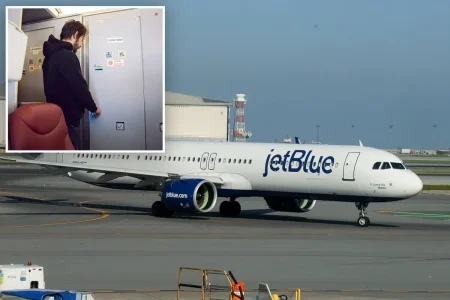The Mocktail Revolution: How Alcohol-Free Drinks Are Changing Holiday Traditions
This Thanksgiving, a quiet revolution is taking place around holiday tables across America. The traditional clinking of cocktail glasses is increasingly being replaced by the colorful, creative world of mocktails—and it’s not just a passing trend. Nearly half of Americans now prefer non-alcoholic options during holiday gatherings, reflecting a significant cultural shift in how we celebrate together.
Behind this transformation are younger generations—primarily millennials and Gen Z—who are consciously redefining drinking culture. Their preferences have sparked remarkable growth in the alcohol-free beverage market, with zero-proof spirit sales jumping 22% in just the past year. Industry analysts project this market will surge beyond $1 billion by the end of 2025, according to Nielsen data. This isn’t merely about abstaining from alcohol; it represents a broader movement toward mindful consumption and inclusive celebrations where everyone can participate in the ritual of special drinks regardless of their relationship with alcohol.
Despite the growing popularity of mocktails, traditional cocktails still maintain their place in holiday celebrations. Sam Harris, beverage manager at Mohonk Mountain House in New York’s Hudson Valley, acknowledges that while his bar now offers spirit-free alternatives, classic cocktails remain their top sellers. “There’s something special about sitting down to an elegant dinner and ordering an Old Fashioned or a dirty martini, especially around the holidays,” Harris told Fox News Digital. This tension between tradition and innovation creates an interesting dynamic in the beverage industry, where professionals are finding ways to honor cocktail culture while expanding it to include those who don’t drink alcohol. Kentucky-based mixologist Jennifer Brian sees mocktails not as a replacement but as a necessary expansion: “Mocktails are finding their way onto more and more menus every day, and rightly so.”
The evolution of mocktail culture reflects changing attitudes about sobriety and wellness. Natalie Battaglia, founder of The Mindful Mocktail website, has witnessed this transformation firsthand. “When I first started sharing mocktail recipes about five years ago, many people still saw them as an afterthought—something you’d make for the designated driver or a pregnant friend,” she explained. “Now, they’ve become a genuine choice.” This shift is particularly meaningful during the holiday season, when social pressure around drinking traditionally intensifies. Derek Brown, a Washington, D.C.-based expert on no- and low-alcohol cocktails, emphasizes that the mocktail movement is fundamentally about choice: “Nonalcoholic drinks have added a choice, which is at the heart of what advocates like myself are trying to do. The social pressure may be lessening, but it’s still so ingrained in our culture.” For many Americans, the ability to decline alcohol without explanation or judgment represents a welcome cultural change, especially among younger generations who tend to drink less than their predecessors.
Social media has played a crucial role in accelerating the mocktail revolution. Platforms like TikTok and Instagram have become vibrant showcases for alcohol-free creativity, with creators like Battaglia sharing visually stunning mocktail recipes that garner millions of views. From festive cranberry and pomegranate spritzes to sophisticated coffee-inspired creations, these drinks challenge the notion that alcohol-free means flavor-free or boring. “Social media has been a game-changer,” Battaglia notes. “Platforms like Instagram and TikTok have shown that alcohol-free drinks can look and taste incredible.” This online enthusiasm doesn’t just inspire home bartenders—it signals to the beverage industry that there’s a substantial market for thoughtful, complex non-alcoholic options.
The ripple effects of this mocktail revolution extend well beyond social media and into commercial spaces. Forward-thinking bars and restaurants are investing in sophisticated alcohol-free options, recognizing that today’s consumers expect quality choices regardless of alcohol content. “It’s no longer an afterthought for the most successful bars and restaurants,” Brown observes. “They know this is the future of our business.” As more Americans embrace the flexibility to celebrate with or without alcohol, the hospitality industry is responding with innovation and respect. This Thanksgiving season embodies this cultural shift, as tables across the country feature both traditional cocktails and creative mocktails—not in competition, but as complementary expressions of the same celebratory spirit. The growing acceptance of alcohol-free options represents something more profound than just a beverage trend; it reflects an evolving American culture that values personal choice, inclusivity, and mindful celebration.















